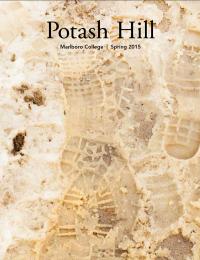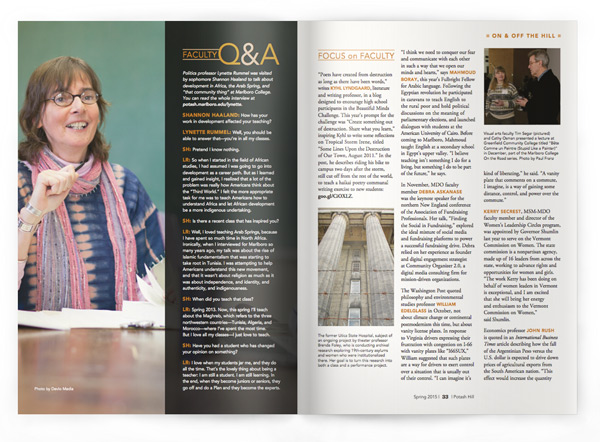
Faculty Q&A
Politics professor Lynette Rummel was visited by sophomore Shannon Haaland to talk about development in Africa, the Arab Spring, and “that community thing” at Marlboro College. You can read the whole interview.
Shannon Haaland: How has your work in development affected your teaching?
Lynette Rummel: Well, you should be able to answer that—you’re in all my classes.
SH: Pretend I know nothing.
LR: So when I started in the field of African studies, I had assumed I was going to go into development as a career path. But as I learned and gained insight, I realized that a lot of the problem was really how Americans think about the “Third World.” I felt the more appropriate task for me was to teach Americans how to understand Africa and let African development be a more indigenous undertaking.
SH: Is there a recent class that has inspired you?
LR: Well, I loved teaching Arab Springs, because I have spent so much time in North Africa. Ironically, when I interviewed for Marlboro so many years ago, my talk was about the rise of Islamic fundamentalism that was starting to take root in Tunisia. I was attempting to help Americans understand this new movement, and that it wasn’t about religion as much as it was about independence, and identity, and authenticity, and indigenousness.
SH: When did you teach that class?
LR: Spring 2013. Now, this spring I’ll teach about the Maghreb, which refers to the three northwestern countries—Tunisia, Algeria, and Morocco—where I’ve spent the most time. But I love all my classes—I just love to teach.
SH: Have you had a student who has changed your opinion on something?
LR: I love when my students jar me, and they do all the time. That’s the lovely thing about being a teacher: I am still a student. I am still learning. In the end, when they become juniors or seniors, they go off and do a Plan and they become the experts.
Focus on Faculty
“Poets have created from destruction as long as there have been words,” writes Kyhl Lyndgaard, literature and writing professor, in a blog designed to encourage high school participants in the Beautiful Minds Challenge. This year’s prompt for the challenge was “Create something out of destruction. Share what you learn,” inspiring Kyhl to write some reflections on Tropical Storm Irene, titled “Some Lines Upon the Destruction of Our Town, August 2011.” In the post, he describes riding his bike to campus two days after the storm, still cut off from the rest of the world, to teach a haikai poetry communal writing exercise to new students.
“I think we need to conquer our fear and communicate with each other in such a way that we open our minds and hearts,” says Mahmoud Boray, this year’s Fulbright Fellow for Arabic language. Following the Egyptian revolution he participated in caravans to teach English to the rural poor and hold political discussions on the meaning of parliamentary elections, and launched dialogues with students at the American University of Cairo. Before coming to Marlboro, Mahmoud taught English at a secondary school in Egypt’s upper valley. “I believe teaching isn’t something I do for a living, but something I do to be part of the future,” he says.
In November, MDO faculty member Debra Askanase was the keynote speaker for the northern New England conference of the Association of Fundraising Professionals. Her talk, “Finding the Social in Fundraising,” explored the ideal mixture of social media and fundraising platforms to power a successful fundraising drive. Debra relied on her experience as founder and digital engagement strategist at Community Organizer 2.0, a digital media consulting firm for mission-driven organizations.
 The Washington Post quoted philosophy and environmental studies professor William Edelglass in October, not about climate change or continental postmodernism this time, but about vanity license plates. In response to Virginia drivers expressing their frustration with congestion on I-66 with vanity plates like “I66SUX,” William suggested that such plates are a way for drivers to exert control over a situation that is usually out of their control. “I can imagine it’s kind of liberating,” he said. “A vanity plate that comments on a commute, I imagine, is a way of gaining some distance, control, and power over the commute.”
The Washington Post quoted philosophy and environmental studies professor William Edelglass in October, not about climate change or continental postmodernism this time, but about vanity license plates. In response to Virginia drivers expressing their frustration with congestion on I-66 with vanity plates like “I66SUX,” William suggested that such plates are a way for drivers to exert control over a situation that is usually out of their control. “I can imagine it’s kind of liberating,” he said. “A vanity plate that comments on a commute, I imagine, is a way of gaining some distance, control, and power over the commute.”
Kerry Secrest, MSM-MDO faculty member and director of the Women’s Leadership Circles program, was appointed by Governor Shumlin last year to serve on the Vermont Commission on Women. The state commission is a nonpartisan agency, made up of 16 leaders from across the state, working to advance rights and opportunities for women and girls. “The work Kerry has been doing on behalf of women leaders in Vermont is exceptional, and I am excited that she will bring her energy and enthusiasm to the Vermont Commission on Women,” said Shumlin.
Economics professor John Rush, is quoted in an International Business Times article describing how the fall of the Argentinian Peso versus the U.S. dollar is expected to drive down prices of agricultural exports from the South American nation. “This effect would increase the quantity of Argentine agricultural products demanded in the United States, benefiting agricultural exporters in Argentina,” says John. According to the article, the lower price for Argentine agricultural products in the global market could prove to be a boon for the nation’s farmers, ranchers, and other exporters.
Spanish language and literature professor Rosario de Swanson's poetry was featured in a recent anthology on immigration and borderlands titled Déjame que te cuente…, Volume III, Bilingual Edition. The volume was published in 2014 by Chiringa Press, in Seguin, Texas. “My work includes selections from a collection titled De canciones de amor y otras penas, and within this a poem about crisis on the border simply titled “Plegaria a la humanidad,” or “Plea to humanity.”
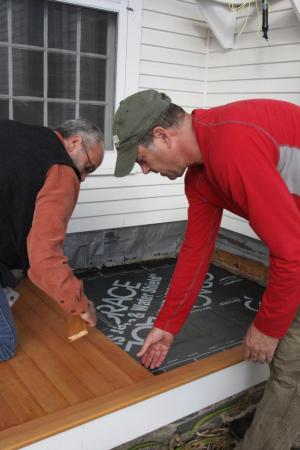 “Maybe once we accept that colleges cannot out-perform the criminal justice system, permission will be granted to try something that actually draws on our strengths,” wrote politics professor Meg Mott in the Washington Post in July. In response to new legislation aimed at curbing sexual assaults on college campuses by forcing colleges to be more accountable in their disciplinary proceedings, Meg argued that many cases would be better served by mediation. “We are so much better at creating the conditions where young people can learn from their mistakes than pretending we can fight crime like the professionals,” she wrote: goo.gl/0GsRvJ.
“Maybe once we accept that colleges cannot out-perform the criminal justice system, permission will be granted to try something that actually draws on our strengths,” wrote politics professor Meg Mott in the Washington Post in July. In response to new legislation aimed at curbing sexual assaults on college campuses by forcing colleges to be more accountable in their disciplinary proceedings, Meg argued that many cases would be better served by mediation. “We are so much better at creating the conditions where young people can learn from their mistakes than pretending we can fight crime like the professionals,” she wrote: goo.gl/0GsRvJ.
Marlboro College was pleased to present the world premier of Vermont Headstones, a set of songs for oboe, viola, and baritone composed by music professor Stan Charkey, as part of the Music for a Sunday Afternoon series in November. The new work was based on headstone inscriptions found in cemeteries throughout Vermont, from Marlboro to Mt. Holly, from the 18th and early 19th centuries. Vermont Headstones was performed by three colleagues from the University of Maryland School of Music, Daren Jackson (baritone), Mark Hill (oboe), and Katherine Murdock (viola).
“TV series are increasingly challenging the dominant position of feature-length film in Africa,” writes French language professor Boukary Sawadogo in the Canadian film journal CineAction. In an article titled “Are Sitcoms the Future of Francophone West African Cinema?” Boukary examines the changing landscape of West African films in light of the ever-growing production, popularity, and accessibility of locally produced TV series. “Sitcoms are creating a new dynamic in African cinemas, with regard to accessibility and delivery that are enhanced and democratized by the development of digital technologies,” he writes.
In September, MSM-MDO Program Chair Kate Jellema and Hillary Boone, nonprofit programs communications coordinator, led sessions at the annual conference of the Alliance for Nonprofit Management, in Austin, Texas. “We came back invigorated by new ideas, but also excited about Vermont’s leadership in fields like results-based accountability, learning communities, and personal leadership development,” says Kate.
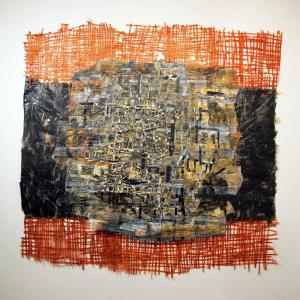 In January, film professor Jay Craven presented a panel discussion in New York titled “Outside Manhattan: John Dewey’s Case for Intensive Learning and Cultural Cinema,” the latest in the Marlboro College On the Road series. He was joined by alumni Jesse Nesser ’13 and Amanda Wilder ’07, both accomplished filmmakers, in an informal talk at one of New York’s premier performance venues, The Cutting Room, owned by Marlboro alumnus Chris Noth. Jay shared anecdotes from his experiences with the Movies from Marlboro program, demonstrating John Dewey’s call for “intensive learning that enlarges meaning through the shared experience of joint action.”
In January, film professor Jay Craven presented a panel discussion in New York titled “Outside Manhattan: John Dewey’s Case for Intensive Learning and Cultural Cinema,” the latest in the Marlboro College On the Road series. He was joined by alumni Jesse Nesser ’13 and Amanda Wilder ’07, both accomplished filmmakers, in an informal talk at one of New York’s premier performance venues, The Cutting Room, owned by Marlboro alumnus Chris Noth. Jay shared anecdotes from his experiences with the Movies from Marlboro program, demonstrating John Dewey’s call for “intensive learning that enlarges meaning through the shared experience of joint action.”
In August, visual arts faculty member Cathy Osman was awarded a Vermont Arts Council “creation grant” to support the creation of a body of work addressing the multifaceted relationship between the U.S. and Cambodia. Cathy has helped lead service-learning trips to Cambodia three times in the last five years, and her recent collage-based work suggests the impact of modernization and the English-speaking world upon the Southeast Asian nation. “This new body of work will continue to reflect on my relationship to my service work in Cambodia and what it means to engage in a culture that is dramatically modernizing, debilitatingly poor, historically scarred, yet resilient,” says Cathy.
“Unlike any other system for assessing the sustainability performance of a company, the MultiCapital Scorecard (MCS) makes it possible to answer the questions all organizations should be asking of themselves,” says Mark McElroy, Marlboro MBA faculty. The MCS method, developed by Thomas & McElroy, a company co-founded by Mark, was recently chosen by Ben & Jerry’s to measure the impact of their sustainability and social mission programs. Mark presented the pilot case with Rob Michalak, Ben & Jerry’s global director of social mission, at the New Metrics ’14 conference at MIT in September.
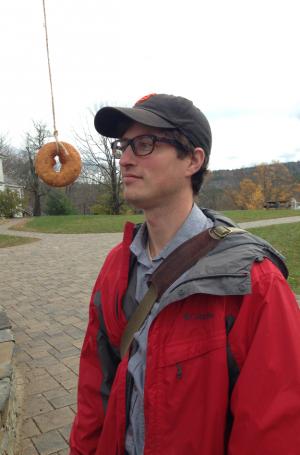 In August, Caleb Clark, faculty and chair of the MA in Teaching with Technology program, led an “E-Textiles” workshop for kids at the Bennington Free Library. An engaged group of 18 kids learned how to add blinking lights to anything they sew, using conductive thread, a battery holder, some small LED bulbs, and what Caleb referred to as a “twinkle chip.” “Believe it or not, this is engineering,” said Caleb, explaining that the workshop was intended to attract both girls and boys to the field. The program was made possible by funding from the Vermont Community Foundation Innovations and Collaborations grant: .
In August, Caleb Clark, faculty and chair of the MA in Teaching with Technology program, led an “E-Textiles” workshop for kids at the Bennington Free Library. An engaged group of 18 kids learned how to add blinking lights to anything they sew, using conductive thread, a battery holder, some small LED bulbs, and what Caleb referred to as a “twinkle chip.” “Believe it or not, this is engineering,” said Caleb, explaining that the workshop was intended to attract both girls and boys to the field. The program was made possible by funding from the Vermont Community Foundation Innovations and Collaborations grant: .
Last summer, math professor Matt Ollis worked with Gage Martin ’15 on several research projects supported by a faculty professional development grant and a Town Meeting scholarship. Their work resulted in a co-authored paper submitted to the Australasian Journal of Combinatorics, titled “R-sequencings and strong half-cycles from narcissistic terraces.” As you surely know already, R-sequencings and strong half-cycles are used to solve problems in several subfields of math such as graph embedding, graph decomposition, and design theory. The paper builds on work from an earlier paper co-authored by Matt and Devin Willmott ’11.

